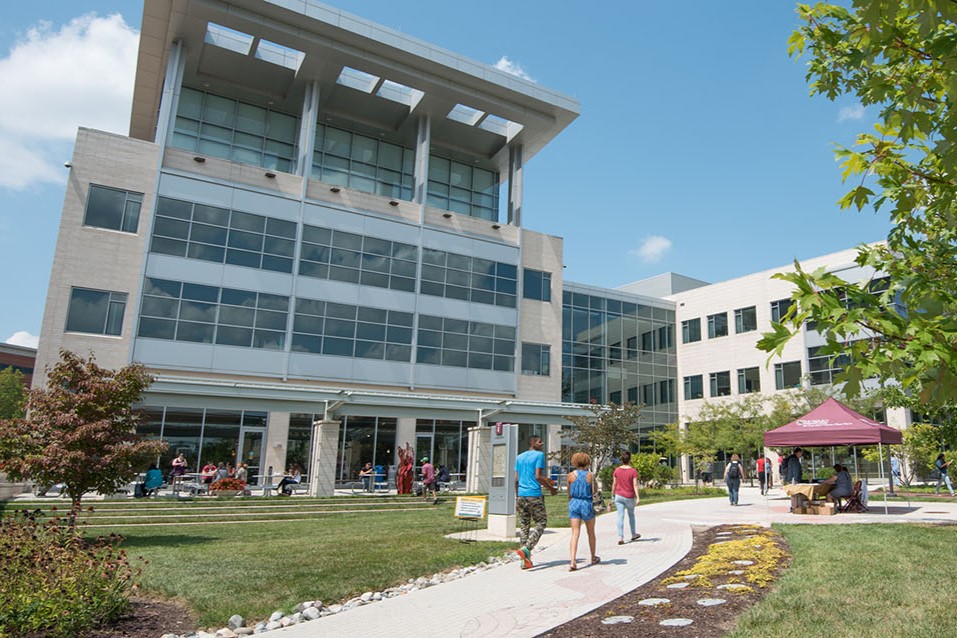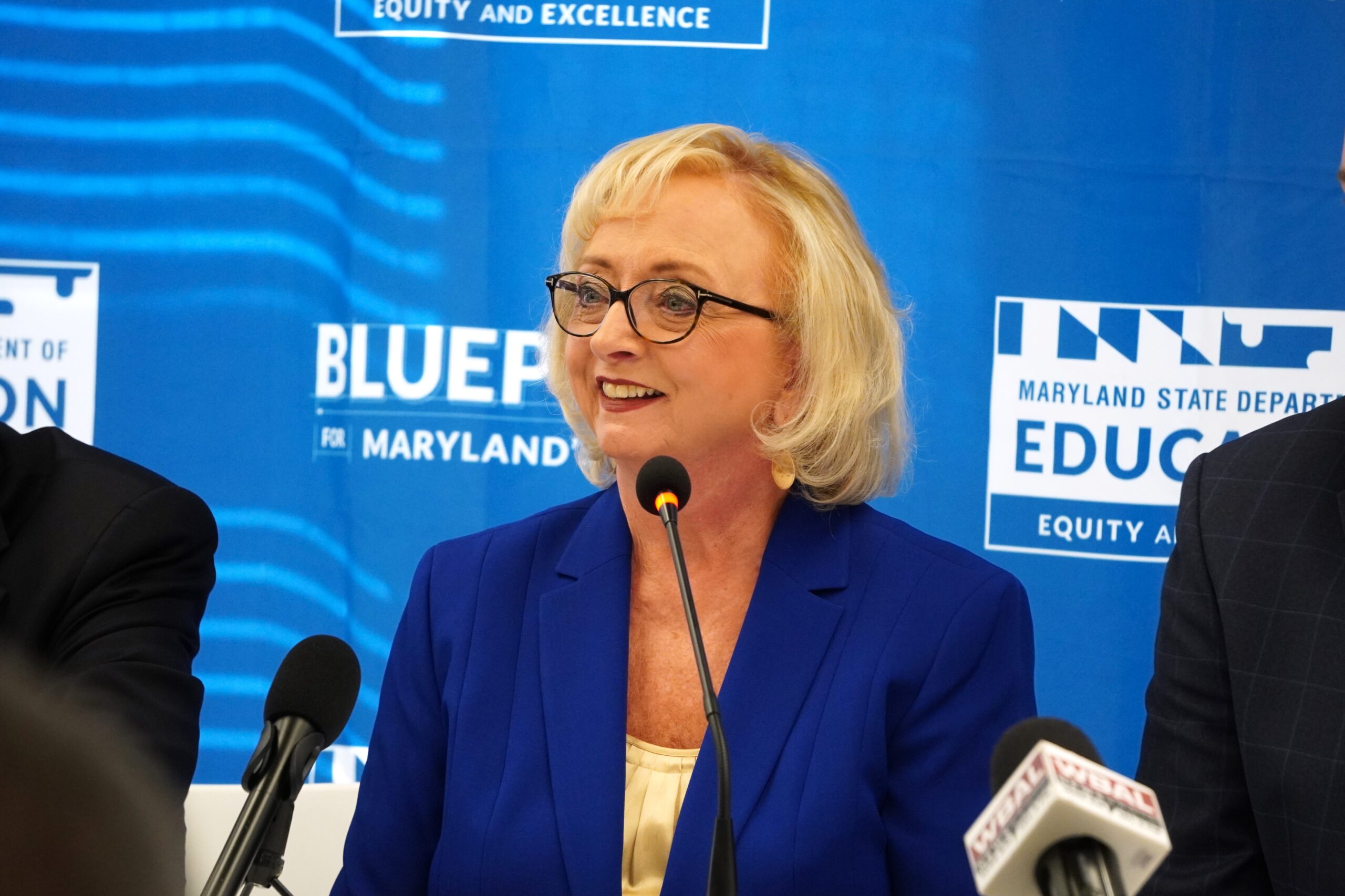Faculty unions form at Howard, Frederick community colleges under new law

Two new public employee unions had extra cause to celebrate this Labor Day weekend.
New faculty unions at Howard Community College and Frederick Community College were certified and recognized last week under a state law governing unionization on community college campuses.
Howard and Frederick are among the first community college faculties in Maryland to organize after the General Assembly passed a collective bargaining bill in 2021, over the veto of former Gov. Larry Hogan (R).
Harford Community College faculty organized under the new law with the Maryland State Education Association in June.
On Wednesday, the full-time faculty at the Howard and Frederick campuses were recognized as members of AFT-Maryland by the state Public Employee Relations Board.
The unions were formed under a new “card check” law, through which unions are recognized if more than 50% of bargaining unit members sign authorization cards saying they’d like to join.
After months of organizing, more than 80% of the 170 faculty members at Howard Community College and 100 faculty members at Frederick submitted cards to the board on Aug. 21.
The Union of Harford Community College Faculty was also formed under the card check rule and was certified by the former State Higher Education Labor Relations Board on June 16.
With the addition of the Frederick and Howard faculties, the American Federation of Teachers Maryland now represents about 18,000 employees across the state.
The community colleges are among 54 new units organized this year by the AFT, the nation’s largest higher education union. Its total membership is now at a record high of 1.72 million, union leaders said.
“Higher ed faculty want unions — and the more workers who are organized, the more students see that respect and voice leads to greater opportunity, that’s the way more families have access to the middle class,” AFT’s national president, Randi Weingarten, said. “That’s why it is such a hot labor summer.”
Union members at the Frederick and Howard campuses said they undertook the organizing effort to address ever-increasing workloads, inadequate compensation and other issues they hope to deal with as a collective voice.
“I’m for unionizing because faculty know what’s best for our students, our schools and higher education, and a union and a contract will finally give us our say. Administrators tell us how to do our jobs without knowing their way around a classroom. But when it comes to our students and their learning, I trust my colleagues. I trust faculty,” Howard Community College English instructor Tim Bruno said in a statement.
The college issued a statement last week after the union’s certification and recognition.
“As HCC and AFT embark on this new chapter of cooperation, both parties look forward to working closely together. The shared goal is to cultivate an environment that promotes excellence, innovation, and the continued advancement of education,” a press release stated.
In Frederick, the unionization effort comes after allegations of bullying and harassment by former President Elizabeth Burmaster, who left the college in 2021 following protests and a no-confidence vote.
“The history of the institution shows that no existing organization, including FCC’s board of trustees and various state and regional accreditation organizations, will protect faculty and other employees from abusive administrators. The solidarity and power we are creating with our union will ensure our protection,” Greg Coldren, a member of the school’s math faculty, said in a statement.
Ray Baker, a spokesperson for AFT-Maryland, said the new unions will help faculty members elevate their concerns collectively — and improve outcomes for students on their campuses.
“Unions do not necessarily have to be adversarial. In the best situations, unions and campus leadership work hand-in-hand because they have shared goals and shared values,” Baker said.
Nationally, Baker said he thinks labor unions are growing because “workers are looking around and saying ‘This is a little tougher than it used to be. This is a little harder than it used to be. I know we’re not getting the benefits that this work once delivered.’”
“So the way that you remedy that, the way that workers can find some power for themselves again, is through a union,” Baker said. “And that’s why we’re seeing this increased interest.”
Before passage of the 2021 collective bargaining law, some employee groups were already organized at the Community College of Baltimore County, Montgomery College, and Prince George’s Community College.
There are additional faculty organizing efforts by AFT-Maryland underway now at the Community College of Baltimore County and Prince George’s Community College.
“Hopefully very soon we will be adding them to our labor family as well,” Baker said.
At Anne Arundel Community College, the push for a unionization vote is underway.
In May, Service Employees International Union Local 500 filed a representation election petition with the state, seeking to become the exclusive representative of part-time faculty there.
The new labor actions have gone forward under the purview of the Public Employee Relations Board, a new panel that was created by The Public Employee Relations Act passed by the General Assembly earlier this year. The new board replaces and consolidates three former panels: the State Labor Relations Board, the State Higher Education Labor Relations Board, and the Public School Labor Relations Board.
Gov. Wes Moore (D) named the first members of the new Public Employee Relations Board in August. The members are subject to confirmation by the Maryland Senate.
Editor’s Note: This story was updated to include information about the faculty unionization effort at Harford Community College and to correct that the Howard and Frederick faculty unions are not the first established under the new law.




 Creative Commons Attribution
Creative Commons Attribution